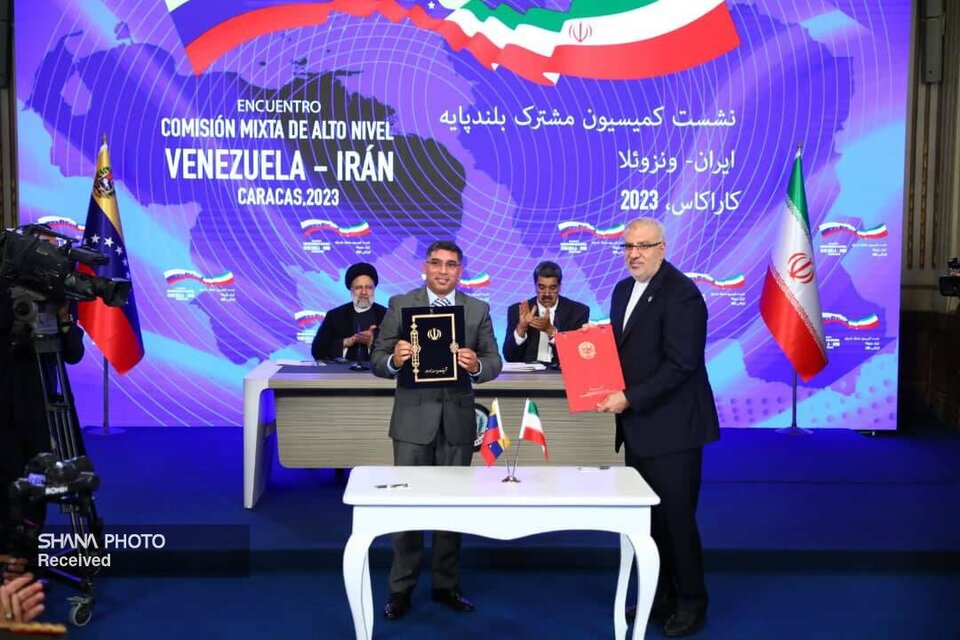Iranian President Seyyed Ebrahim Raeisi’s recent visit to Latin America is an affirmation of memorandums of understanding and contracts signed by the ministries of petroleum, agriculture, industry, and economy as well as the private sector companies over the past 20 months.
In other words, Raeisi’s visit is aimed at developing relations with extra-regional countries, increasing exports of oil, gas condensates, technical and engineering services, oil equipment, and paving the way for the private sector companies and quasi-public corporations’ presence in remote regions.
Without a shadow of a doubt, the Ministry of Petroleum is the flag-bearer of the 13th administration’s active front. In fact, a major part of the incumbent government’s interactions with Latin American nations, particularly Venezuela, in the past 20 months is related to Iran’s exports of oil, gas condensates, technical and engineering services, and oil equipment as well as renovation, overhaul, and increase of refining complexes.
Ministry of Petroleum makes breakthrough in energy diplomacy
The Ministry of Petroleum’s approach toward boosting relations with Latin American countries is regarded as a breakthrough in energy diplomacy. The ministry’s measures over the past 20 months have prepared the ground for strong presence of Iran’s oil companies in the big energy market of Latin America, giving the private sector companies and quasi-public corporation a golden opportunity to enter the lucrative market and increase Iran-Venezuela oil trade volume to $4 billion during the period – a significant development after a long hiatus.
Petrochemical projects
Raeisi’s tour of Latin America is also aimed at focusing on Iran’s participation in this region’s petrochemical projects.
Venezuela’s installed petrochemical output capacity stands at 12 million tons per year (Mt/y) while just 2 Mt/y are produced. This is a good opportunity, which Iranian investors need to grasp.
The private sector of Iran could earn enormous revenues through exporting technical and engineering services and petrochemical equipment to Latin America.
Oil industry internationalization
The internationalization of oil industry is a dream Iran has cherished for so long – a dream that had not come true due to lack of necessary measures.
The construction of refineries beyond the borders seriously followed by all oil- and gas-rich countries had been ignored in Iran.
But now, conditions have changed. The engineering, procurement, and construction (EPC) contract Tehran and Caracas signed to renovate Jose oil export terminal in Venezuela, the first ever of its kind signed by an Iranian company abroad, the contract to equip Venezuela’s gas transmission systems with precision tools by an Iranian knowledge-based company, and another contract a private sector company of Iran signed to restore and increase a Venezuelan petrochemical complex’s capacity are clear examples of Iranian oil industry’s move toward internationalization.


Your Comment